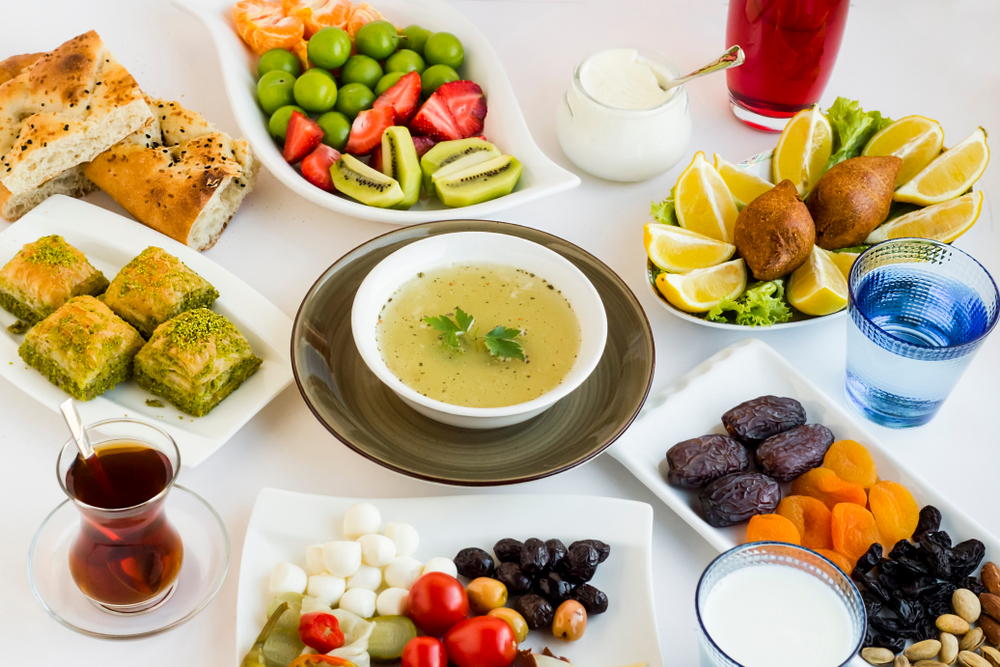Nutritious fasting during Ramadan
Ramadan is a holy month for Muslims around the world, during which they fast from sunrise to sunset. This fasting is not just a spiritual exercise but also offers the opportunity to purify and detoxify the body. Eating healthily during Ramadan is essential to ensure the body receives the right nutrients to get through this period. In this blog, we discuss some tips and advice for healthy eating during Ramadan.

-
Suhoor: start with nutritious fasting
The meal eaten before sunrise, Suhoor, is crucial to prepare your body for the day. It’s important not to skip this meal, as it helps maintain your energy levels throughout the day. Opt for nutritious foods rich in fibers and proteins, such as whole grain bread, oatmeal, eggs, nuts, and fresh vegetables and fruits. These foods help keep you satiated longer.
-
Hydration
During the night, it’s important to drink enough water to stay hydrated. Drink as much water as possible between Iftar (the meal after sunset) and Suhoor. Avoid caffeinated beverages such as coffee and tea, as these drinks are diuretic and can lead to dehydration.
-
Iftar: balanced and varied
When breaking the fast, it’s traditional to start with an odd number of dates and water. Dates are an excellent source of natural sugars, fibers, vitamins, and minerals. After the dates, it’s important to have a balanced meal consisting of carbohydrates, proteins, and fats. Think of a plate with a good balance of vegetables, lean protein sources, and whole grains.
-
Limit processed and unhealthy food
Although it might be tempting to reach for sweet and processed snacks after a day of fasting, it’s important to limit these. Such foods offer little nutritional value and can lead to weight gain and an unstable blood sugar level. Instead, opt for natural sweeteners like fruit.
-
Stay active
Although fasting during Ramadan can be challenging, it’s important to stay active. Light to moderate physical activity, such as walking or yoga, can help maintain your energy level and promote digestion.
-
Listen to your body
Every body reacts differently to fasting. It’s important to pay attention to the signals your body sends. If you feel weak or dizzy, make sure to rest enough and consult a doctor if necessary.
Nutritious Fasting
Ramadan is a time for reflection and offers the chance for both spiritual and physical cleansing. By being mindful of what and how you eat, you can go through this holy month in a healthy and nutritious way. It’s a time to be grateful for the food we have and to treat our bodies with care and respect.
We’ve also created a sample daily menu for Ramadan: Healthy Eating During Ramadan
Ramadan Mubarak!
